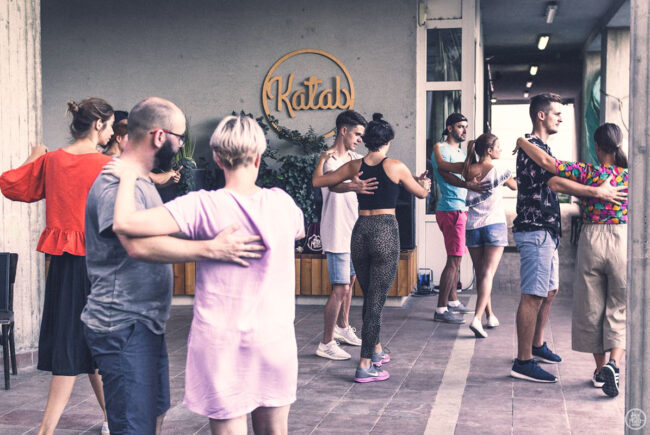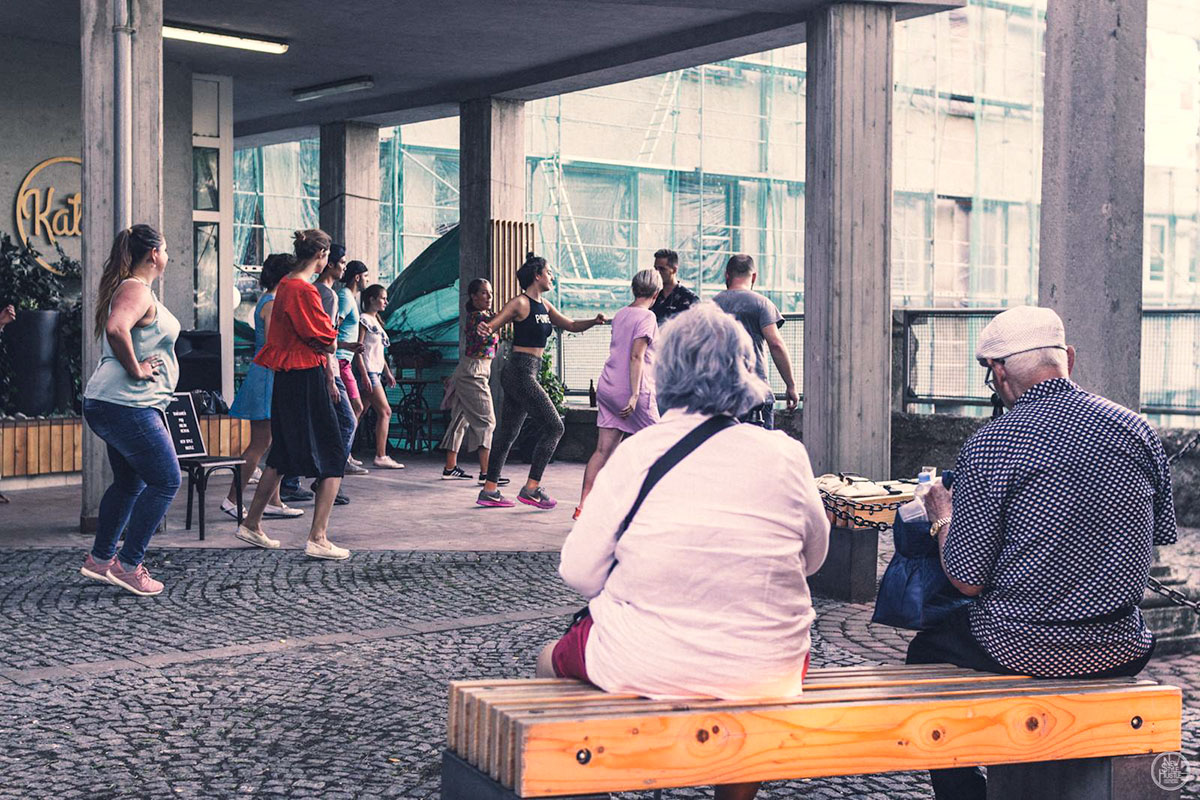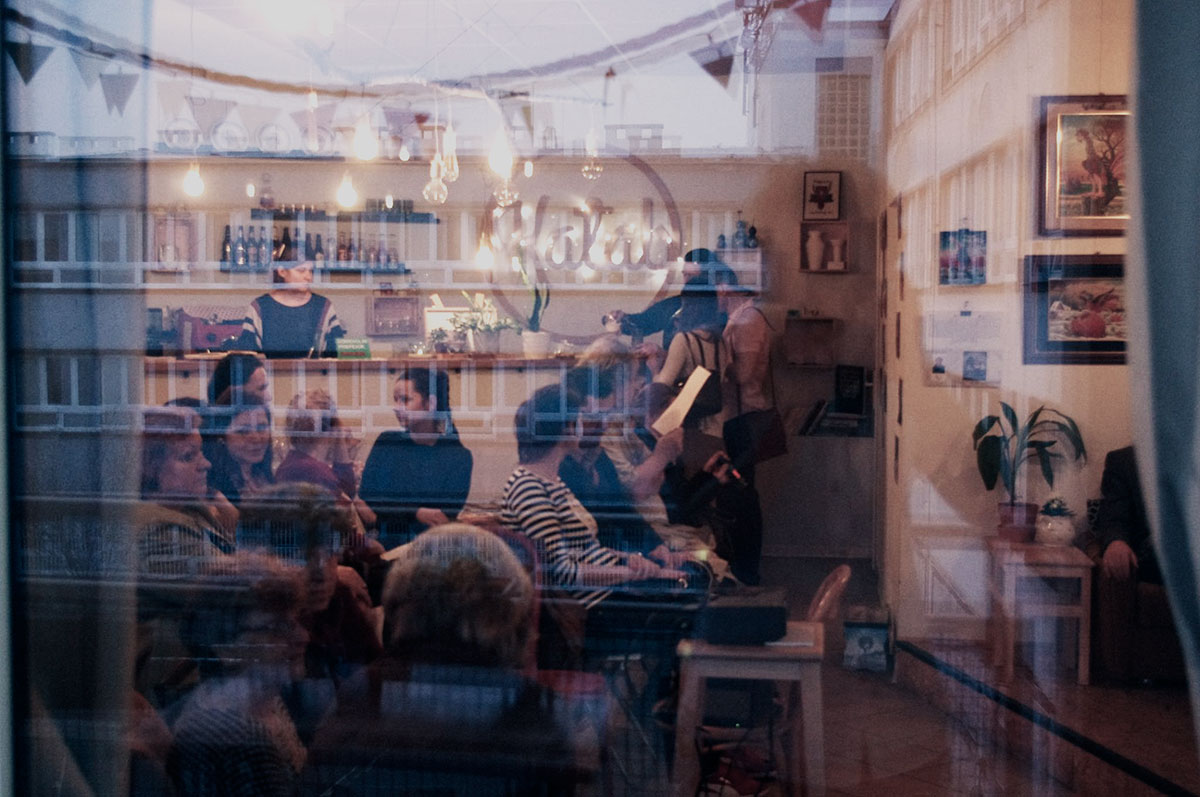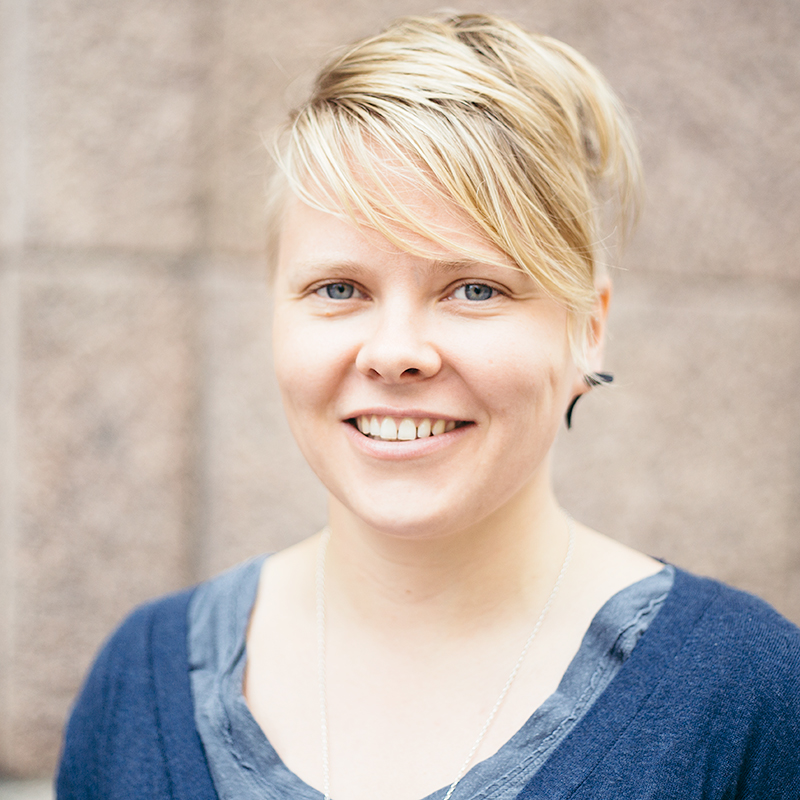

Kalab has also an open patio where events invite neighbours and passers-by to join.
Kalab has also an open patio where events invite neighbours and passers-by to join.
Kalab is a community centre in Bratislava run by volunteers who saw a cure for intolerance in bringing people together.
At first look, Kalab is an open-to-all café with a warm and friendly atmosphere, a welcoming patio and a bursting event calendar in the centre of Bratislava, Slovakia. Big windows and an open door are inviting for passers-by.
A more careful look at this establishment on the ground floor of an apartment building shows that it is actually a community centre with a mission underlying all the events organised there, either by the running NGO or its guests.
“We were fed up with intolerance especially towards minorities. The starting point for the centre was to raise awareness of different minorities living in Slovakia and the struggles they face,” says one of the founders, Andrea Kulitkova.
Since being established three and a half years ago, this homelike café has served as a public living room for citizens. To promote tolerance against minorities, events such as book clubs, movie nights, concerts, drama, street festivals, workshops and talks are organised for different generations of the general public.
“When thinking where all of the intolerance comes from, we found out that at school they do not have lessons on the local minorities or Slovakians being a minority somewhere else, so it comes from not having the knowledge,” Kutlikova says.
Informal learning by accident
Kutlikova runs the Kalab NGO and the centre of the same name with her sister and their partners. With only small government funding, they keep the establishment running through donations, volunteer work, the income from the bar and renting out the space during daytime.
Even though they all have day jobs elsewhere, they all are very passionate about the place and the mission behind it.
“Instead of ‘a centre of minorities’ where one goes maybe once a year, we wanted to establish a lively public space for all age groups to come together and learn,” Andrea Kulitkova explains.
Most of the urban learning taking place at Kalab is carefully planned, but happens unexpectedly. The staff, for example, make sure that before each event they introduce the background of the organisation.

Bringing people together to talk and interact with each other encourages informal learning.
“I think we cheat people in a way,” Kutlikova smiles. “They come, for example, for an art exhibition, but they also get to know what we do and learn about the minorities in different ways.”
Kutlikova thinks that the intimate surroundings of the café have helped to create a safe space for encountering others, also of different opinions. For discussion events on controversial topics, they use facilitators. At film screenings or other art events, there is always a chance to talk with directors or artists.
After the events, there is often a long informal afterparty at the bar where people can continue talking and approach the speaker or artist, if they were too shy to do so at the event.
“Informal learning happens when people talk to each other or experts in some field. Learning by doing or discussing is a much more effective way for us to teach tolerance than traditional learning at schools.”
Narrowing the gap by discussing together
One of the minority groups Kalab tries to shed light on are the migrants from all different backgrounds.
“Of all the habitants of Slovakia, 2.2% are migrants, only a handful of whom are refugees but, in a public poll, people reckoned that 8% of the population are refugees. So fake news is really doing a good job.”
To tackle prejudices and stereotypes, Kalab aims to create personal connections between people from different origins and backgrounds.
It might be easy to be rude or hateful on the internet, but things change when people sit together on the cosy sofas of Kalab with a beer in their hand.
“We often have people who have totally different opinions, but these opinions are expressed in a nicer manner when talking about them while face-to-face with the people you have hateful thoughts about.”
Targeting the narrow-minded ones who might have the most prejudices is important, but it’s not easy.
“We cannot change the minds of the people, but at least let’s talk about the subject and accept the opinions and ways of different people instead of spreading hate.”
Serving all ages
It has been important for the founders to try to connect with all the age groups, from kids to the elderly.
“Older people are very interested in the minority topics maybe because, in the history of Bratislava, the city used to be very multicultural when Slovakia was part of Austria-Hungary. Older people remember it through their relatives, and they like to listen to stories about it.”

All the age groups are invited to join the events at Kalab.
To reach the older generations for the Kalab events, they had to plan more in depth, since most of Kalab’s advertisements take place on social media. They cooperate with the city information centre, but the best way is by personal contact.
“If an elderly person comes, for example, to an art exhibition, we personally greet them and invite them to the next events. Usually they will bring friends. We also go to senior houses and spread the word about our events.”
Spurred on by the original idea of the lack of tolerance education in schools, Kutlikova with her colleagues especially wanted to reach the schoolkids and their teachers.
During the day, Kalab staff hosts courses on the topic of understanding and acceptance of different minorities separately for teachers or the whole classroom. The aim is to introduce to the teachers activities on how to teach these topics further at school. They even provide lunch and subsidise the teachers’ travel expenses to make sure their classes are available for teachers from outside the capital region as well.
“When teaching the kids, we prefer the classrooms to come to our space. With us, they get out of a school environment and learn in a different manner,” Kutlikova explains. They introduce the topics of minorities and tolerance to the kids by playing a game or watching a movie with them.
Reaching out from the urban areas
The future plans of the Kalab team include expanding the educational activities outside Bratislava.
“There are some rural areas from where it is very hard for teachers to come to the capital city, so we want to go there,” Kutlikova explains.
Also, as the team is happy to see more and more very cool and open-minded places in their city, they are eager to cooperate as much as possible with organisations and people with similar goals to theirs.
The event calendar might expand even further, but the cosy living-room atmosphere and safe space for discussion are trump cards for Kalab.

This cozy cafe is actually a community centre, where light is shed on different monirities.
Author







